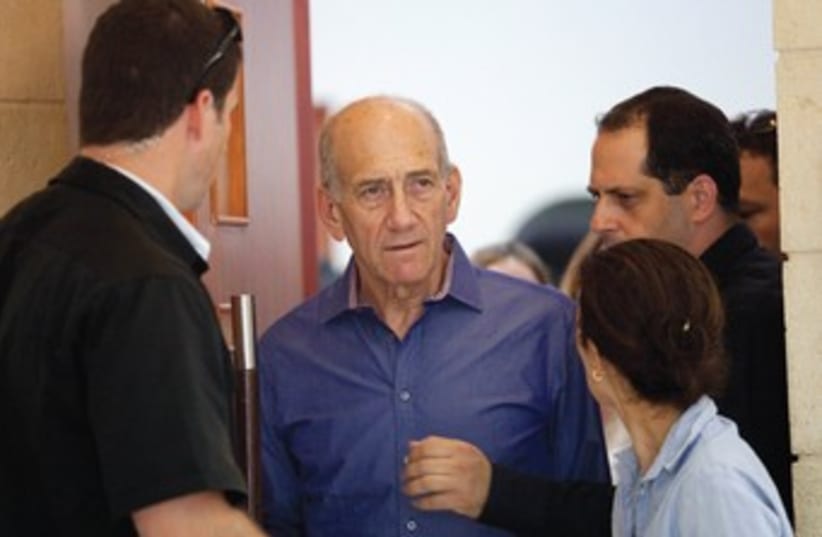Olmert, Zaken, Lupolianski, Dankner and 12 others to face their day in court
The affair involves a wide array of top politicians allegedly receiving bribes to “smooth over” legal and zoning problems for the Holyland residential project in southern Jerusalem.
